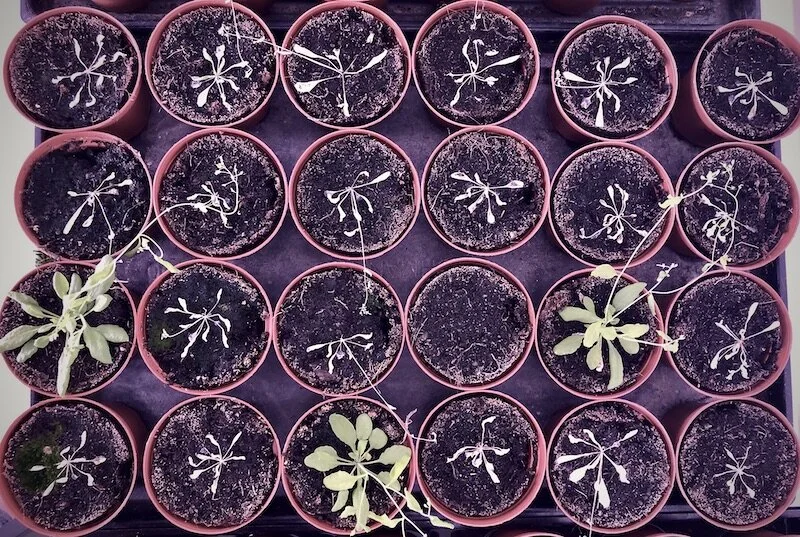
Research
My research interests focus on the impact of environmental stress on genome stability, and how the memories of strong environmental effects can be passed across generations.
Transposable Elements
My postdoc work has been with Dr. Etienne Bucher. We are studying the effects of TE mobility on complex phenotypes, with the ultimate goal of using active TEs to rapidly breed climate-ready crops. In the lab, we are investigating ONSEN, a heat-activated TE in Arabidopsis thaliana, and its relationship to heat and stress tolerance in some A. thaliana lines. I am also looking at TE mobility in rice; first, to find active TEs, and second, to investigate the phenotypic effects of novel TE insertions in rice varieties. This work is done in collaboration with Dr. Caroline Hsing at Academia Sinica and the Taiwan Agricultural Rice Institute.
Ecological Epigenetics
I completed my Ph.D. in ecological epigenetics with Dr. Christina Richards. My dissertation focused on the population genetic and epigenetic effects of environmental stress over different time scales. I examined the response of Spartina alterniflora, a foundational marsh grass, to the Deepwater Horizon oil spill. I also examined the seasonal changes in DNA methylation in several coastal species.
Teaching
Genes to Greens
A changing climate and rapid advancement in biological technology are shifting the ways humans are able to grow food. We are now able to produce food more efficiently than ever, but are losing arable land to harsh and unforgiving climates. We also must grapple with ethical questions about what natural resources should be sacrificed for the good of the global food supply. In this course, students will gain an understanding of plant physiology, traditional agricultural techniques, and traditional and modern crop breeding strategies. Additionally, students will engage the current debates surrounding food production.
Population Genetics
How can we forecast the survival of an endangered species? How quickly can antibiotic resistance arise? Who is Lucy? Population genetics studies the genetic variation within and between populations that arise from several factors, including natural selection. Migration, mate choice, and habitat all influence the evolution of life. In this course, we will use mathematical modeling to describe how these fundamental forces change populations over time, and we will learn how these principles are used to breed our food supply, build our medicines, and manage our ecosystems. Class sessions will combine lectures with discussion and in-class problem-solving. Using these ideas, students will learn how evolutionary biologists reconstruct history using the principles of inheritance and variation.
Publications
Alvarez, M.*, Foust, C.*, Robertson, M.*, Ainouche, M., Ferreira de Carvalho, J., Meals, C., Preite, V., Salmon, A., Shayter, A., Schrey, A., Verhoeven, K., and Richards, C. (2014) Molecular response to challenging environmental conditions in Spartina alterniflora: an integrative approach. Biological Invasions Special Issue. ICI Spartina.


